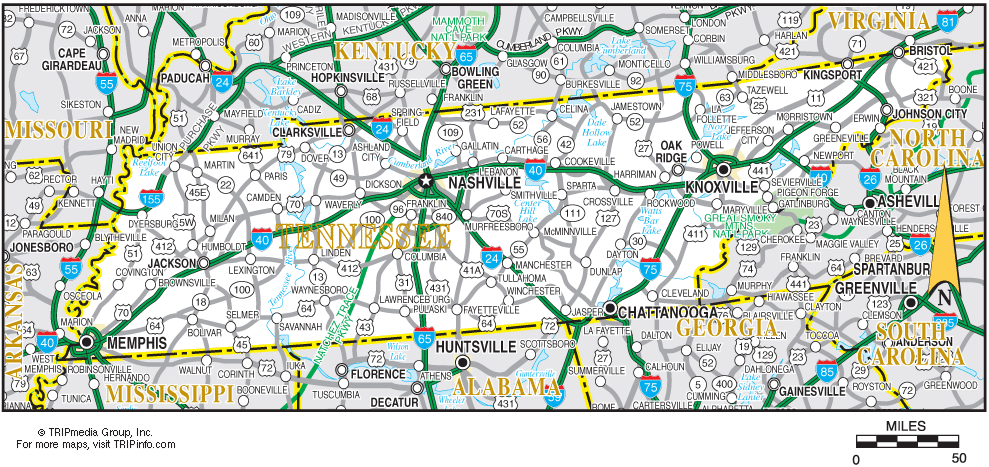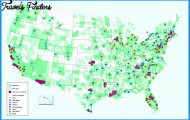Changing Economic and Political Conditions in Tennessee
Tennessee’s political and economic characteristics make it attractive to not only Latinos, but also to their employers. With the absence of minimum-wage
laws, the existence of right-to-work legislation, and the presence of pro-growth local governments, Tennessee has drawn low-wage, labor-intensive jobs, and its low living costs and tight labor markets have made it attractive for Latinos. Latino migration to Tennessee, however, has not been an exclusively economic phenomenon, as social factors, like safer neighborhoods and schools, have also drawn newcomers. Nonetheless, Latinos are mainly coming to Tennessee to work.
In Tennessee cities, the service and construction industries experienced labor shortages in the 1990s, and Latinos often filled these physically demanding jobs with low wages, few benefits, and erratic work schedules. Whether hired through temporary staffing agencies or brought to work sites through migrant social networks, Latino workers play key roles in Tennessee’s booming urban economies. Although anecdotal arguments about worker displacement and conflicts periodically surface, relations among white, black, and Latino workers are difficult to generalize across the state. Studies of Memphis’s distribution sector, for example, point to both solidarity between Latino and black workers over employer treatment and tensions over language and work pace. In rural areas, like Hamblen County, the arrival of Latinos often coincided with disappearing manufacturing jobs, leading some local residents to blame Latinos for job losses and overall community decline.
Tennessee’s political climate has also changed rapidly. From 2001 to 2004, Tennessee shifted from making driver’s licenses available to residents without Social Security numbers to passing one of the nation’s most restrictive laws concerning migrant access to driver’s licenses. As late as 2000, Tennessee had few politically focused Latino organizations. By 2006, however, a Hispanic political-action committee was in operation alongside statewide groups, such as TIRRC. More recently, the grassroots Hispanic Community Group of Tennessee has emerged, led by day laborers and other disenfranchised groups; this organization focuses on local community involvement.
These quick and sometimes unanticipated transitions in Tennessee’s Latino communities have generated a range of local scenarios. Whereas in Memphis, Latino workers had an economic impact of $1,020,000,000 and almost 36,000 jobs in 2001, smaller towns with limited tax bases face difficult choices in their efforts to meet new demands for schools, health clinics, and court systems.14 In many Tennessee cities, growing networks of Latino businesses, political groups, and social organizations are in place, even if those organizations do not always connect with the most vulnerable Latinos. In smaller towns, however, Latinos rely on loose networks of statewide groups based in cities, local agencies overwhelmed with new demands, and small organizations staffed with volunteers.
All of these differences are important to remember when thinking about Latinos in Tennessee. The state’s Latino population does not speak with one voice, nor are all its features captured in broadly painted depictions. Alongside well-known
Latinos discussed below, for instance, are Latinos who live and work in the shadows of Tennessee’s economic and political system.
















